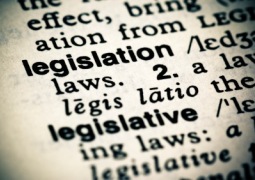
Parliament is a step closer to passing the Public Procurement Bill of 2023 after the National Council of Provinces’ (NCOP) Select Committee on Finance adopted a report that endorsed the Bill in a virtual meeting on Tuesday evening.
The Bill was introduced to Parliament by the Minister of Finance, Mr Enoch Godongwana, last year in June. It was then referred to the National Assembly’s (NA) Select Committee on Finance.
The committee then processed the Bill and adopted a report that endorsed it last year in December. The Bill was passed by the NA in the same month and referred to the NCOP for concurrence. The Chairperson of the NCOP, Mr Amos Masondo, then referred the Bill to the Select Committee on Finance for processing.
The NCOP committee was briefed on the Bill by the National Treasury for the first time in February 2024 and held public hearings, as well as negotiated and received final mandates from nine provincial legislatures. All provincial legislatures, except for the Western Cape, mandated their respective delegates to the NCOP to support the Bill.
A written mandate from the Western Cape Provincial Legislature stipulates that it “confers on the Western Cape’s delegation in the National Council of Provinces the authority not to support the Bill”.
According to the National Treasury, the public procurement system in South Africa is currently fragmented as several laws regulate procurement across the public administration. “This fragmentation results in confusion as different procurement rules apply. Some of these laws pre-date the constitutional order brought about in 1994,” Treasury said.
Thus, the Bill aims to regulate public procurement and prescribe a framework for preferential procurement. Clauses 4 and 5 of the Bill provide for a Public Procurement Office and its functions within the National Treasury. The functions of the Public Procurement Office will include, among others, promoting compliance with the Bill by procuring institutions, promoting the use of technology and innovation and learning towards modernisation of the public procurement system, and developing and implementing measures to ensure transparency in procurement.
On the other hand, clause 38 provides for the establishment of the Public Procurement Tribunal to review a decision taken by a procuring institution to award a bid or a decision to debar a person in terms of clause 15, which provides for the issuing of a debarment order to bidders or suppliers or any of the directors, members, trustees, or partners of that bidder or supplier by a procuring institution under specified circumstances.
The Public Procurement Bill is in line with section 217(1) of the Constitution, which stipulates that procurement by organs of state and identified institutions must occur following a system that is fair, equitable, transparent, competitive, and cost-effective. Once adopted by the NCOP, the Bill will be referred to the President for assent.
Justice Molafo
8 May 2024

